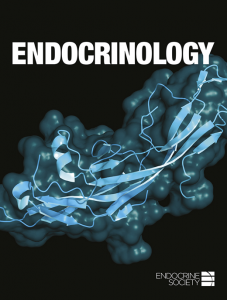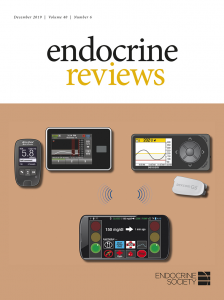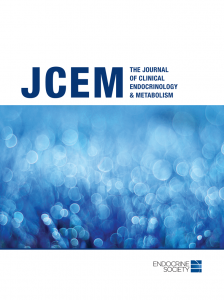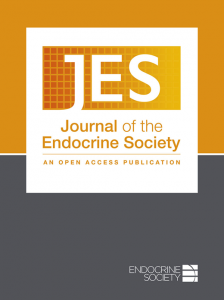For the fifth year in a row, Endocrine News spoke with editors from Endocrine Society journals to get the scoop on the top endocrine discoveries of 2019. Here is part 9 of Eureka! 2019.
Associate editor for The Journal of Clinical Endocrinology & Metabolism as well as professor at the University of Colorado Anschutz Medical Campus in Aurora, Robert H. Eckel, MD, selected “Lipid Metabolism Links Nutrient-Exercise Timing to Insulin Sensitivity in Men Classified as Overweight or Obese,” by Wallis, G.A. and Gonzalez, J.T., et. al. and published in October. “The best time to exercise related to food intake has been debated,” Eckel says. “In particular, there is a deficit in understanding how the skeletal muscle response to a period of exercise training modifies this timing.”
In two experiments, researchers looked at acute metabolic responses to manipulating nutrient-exercise timing in 12 sedentary obese men (the “Acute Study”), then longer-term adaptations to carbohydrate-exercise timing in 30 sedentary obese men (the “Training Study”). Acute Study participants ate a standardized breakfast of 25% of their daily food intake requirements, followed by 90 minutes of rest, then a single bout of 60 minutes of cycling. They also reversed the events, having a session of exercise followed immediately by breakfast.
Training Study participants were randomized to three groups — a no-exercise control group, a breakfast before exercise group, or an exercise before breakfast group for six weeks. The Acute Study demonstrated that exercise before food intake increased whole body and skeletal muscle lipid utilization. The Training Study demonstrated that increases in lipid utilization were sustained with exercise before food intake for six weeks. Likewise, insulin sensitivity increased.
“In this well-designed and implemented study in overweight and obese men, the data demonstrate that exercise before nutrient intake produces increased muscle lipid utilization and improves insulin sensitivity,” Eckel says. “Now it’s an opportune time to extend this work to people with type 1 and type 2 diabetes.”
Below are the studies from the “Eureka 2019!” article in the December Endocrine News:

Sex Differences in Inflammatory Responses to Adipose Tissue Lipolysis in Diet-Induced Obesity,” Singer, K., et. al. February 2019
“Fibroblast Growth Factor-21 Controls Dietary Protein Intake in Male Mice,” Ryan, K.K., et. al. fMay 2019
“The Gut Microbiome Derived from Anorexia Nervosa Patients Impairs Weight Gain and Behavioral Performance in Female Mice,” Sudo, N., et. al. October 2019
“Neonatal Estrogen Causes Irreversible Male Infertility via Specific Suppressive Action on Hypothalamic Kiss1 Neurons,” Tsukamura, H., et. al. May 2019
“Transgenerational Bisphenol A Causes Deficits in Social Recognition and Alters Postsynaptic Density Genes in Mice,” Rissman, E.F., et. al. August 2019
“Gestational Diabetes Adversely Affects Pancreatic Islet Architecture and Function in the Male Rat Offspring,” Dolinsky, V.W., et. al. August 2019

“Genetic Risk Scores for Diabetes Diagnosis and Precision Medicine,” Mahajan A., et al. July 2019

“Lipid Metabolism Links Nutrient-Exercise Timing to Insulin Sensitivity in Men Classified as Overweight or Obese,” Wallis G.A. and Gonzalez J.T., et. al. October 2019
“DNA Methylation of Tumor Suppressor Genes in Pituitary Neuroendocrine Tumors,” Picó A., et. al. April 2019

“Depression in Nonclassical Hypogonadism in Young Men,” Korenman, S.G. November 2018
“Magnetic Resonance Imaging Reveals Human Brown Adipose Tissue Is Rapidly Activated in Response to Cold,” Steinberg, G.R. and Morrison, K.M., et. al. October 2019
“E-Cigarette Exposure Delays Implantation and Causes Reduced Weight Gain in Female Offspring Exposed In Utero,” Caron K.M., et. al. October 2019
New England Journal of Medicine
“An Anti-CD3 Antibody, Teplizumab, in Relatives at Risk for Type 1 Diabetes,” Herold, K.C., et. al. August 2019

